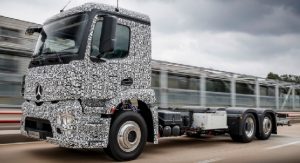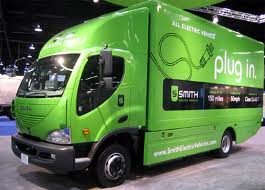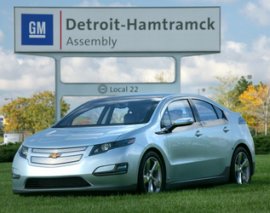Volvo goes electric: Volvo Cars will be electrifying all of its new vehicle offerings starting in  2019. Five all-electric models will come out between 2019 and 2021, three under the Volvo brand and two under Polestar. These five cars will also have other electrified options that may include gasoline and diesel plug-in hybrids and 48-volt options. The Polestar high-performance electric model was launched last month. The product changeover ties into the company’s commitment to minimizing its environmental impact and making the cities of the future cleaner.
2019. Five all-electric models will come out between 2019 and 2021, three under the Volvo brand and two under Polestar. These five cars will also have other electrified options that may include gasoline and diesel plug-in hybrids and 48-volt options. The Polestar high-performance electric model was launched last month. The product changeover ties into the company’s commitment to minimizing its environmental impact and making the cities of the future cleaner.
PEV drivers on charging: Having access to public charging is still the top concern for plug-in vehicle drivers. ON World, a business intelligence firm, conducted a survey of 2,000 U.S. PEV drivers and found that over half are concerned about finding enough of these chargers. Even through 80% of their charging is done at home, they do want to see more stations on the smart grid. Range matters as well; for those interested in PEVs, three quarters would prefer a vehicle that supports a minimum of 300 miles per charge. “The millions of PEVs in use over the next few years will require smart charging solutions that provide network management, dynamic billing, energy savings and vehicle-to-grid Integration,” said Mareca Hatler, ON World’s research director.
Commercial trucks electrifying: Truck companies building engines and supplying components for commercial trucks that don’t offer electric options will fall behind their competitors,  according to a recent report to investors from analyst Alexander Potter of Piper Jaffray. Potter gave Allison Transmission Holding an “underweight” investment rating, advising investors to reduce their holdings in the company. Potter said that several companies, including engine maker Cummins and truck manufacturers Paccar, Navistar, and Scania, are investing in electric vehicle research and projects, potentially leaving Allison behind. While they’re still prototypes and pilot projects for now, the financial outlook will be affected for companies providing components to the industry, he said. Electric buses will provide some of the powertrain technology needed in heavy-duty trucks.
according to a recent report to investors from analyst Alexander Potter of Piper Jaffray. Potter gave Allison Transmission Holding an “underweight” investment rating, advising investors to reduce their holdings in the company. Potter said that several companies, including engine maker Cummins and truck manufacturers Paccar, Navistar, and Scania, are investing in electric vehicle research and projects, potentially leaving Allison behind. While they’re still prototypes and pilot projects for now, the financial outlook will be affected for companies providing components to the industry, he said. Electric buses will provide some of the powertrain technology needed in heavy-duty trucks.

 Commercial electric vehicles are seeing a revival this year, encouraged by government incentives and demand coming from fleets and freight haulers. Electric truckmakers and suppliers had seen several financial failures in recent years, but a turnaround is starting to pick up. California is playing a leading role, with its Sustainable Freight Action Plan aiming to see 100,000 trucks, trains, and cargo-moving machines fueled by cleaner fuels or electricity through its ports and on its roads by 2030. For the global market, Navigant Research says sales of electric drive and electric-assisted commercial vehicles are expected to grow from less than 16,000 in 2014 to nearly 160,000 in 2023. Electric hybrid vehicles are now being used in commercial applications where the improved technology offers major benefits for specific drive cycles that involve city driving in stop-start traffic, Navigant says.
Commercial electric vehicles are seeing a revival this year, encouraged by government incentives and demand coming from fleets and freight haulers. Electric truckmakers and suppliers had seen several financial failures in recent years, but a turnaround is starting to pick up. California is playing a leading role, with its Sustainable Freight Action Plan aiming to see 100,000 trucks, trains, and cargo-moving machines fueled by cleaner fuels or electricity through its ports and on its roads by 2030. For the global market, Navigant Research says sales of electric drive and electric-assisted commercial vehicles are expected to grow from less than 16,000 in 2014 to nearly 160,000 in 2023. Electric hybrid vehicles are now being used in commercial applications where the improved technology offers major benefits for specific drive cycles that involve city driving in stop-start traffic, Navigant says.
